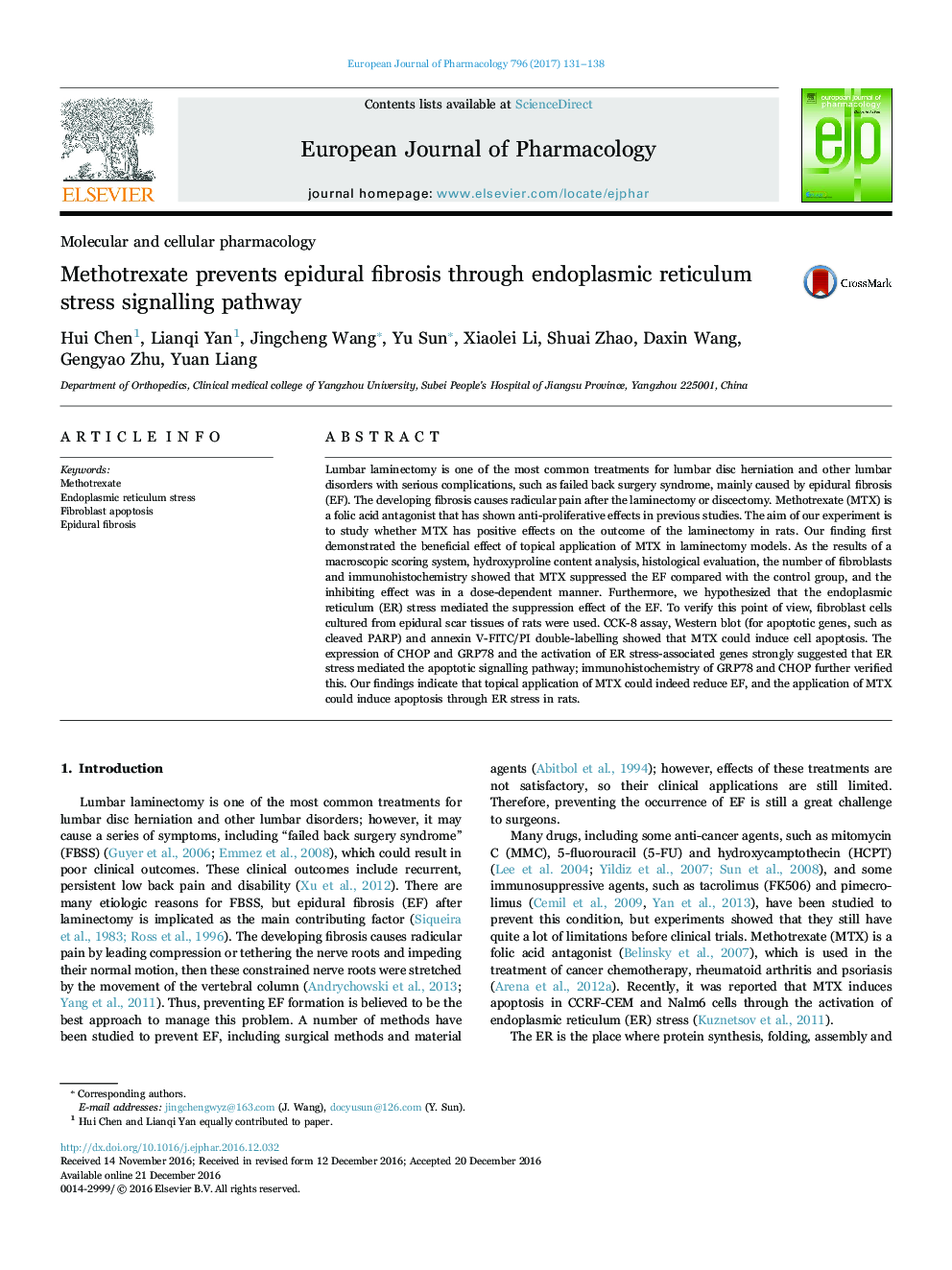| Article ID | Journal | Published Year | Pages | File Type |
|---|---|---|---|---|
| 5554866 | European Journal of Pharmacology | 2017 | 8 Pages |
Lumbar laminectomy is one of the most common treatments for lumbar disc herniation and other lumbar disorders with serious complications, such as failed back surgery syndrome, mainly caused by epidural fibrosis (EF). The developing fibrosis causes radicular pain after the laminectomy or discectomy. Methotrexate (MTX) is a folic acid antagonist that has shown anti-proliferative effects in previous studies. The aim of our experiment is to study whether MTX has positive effects on the outcome of the laminectomy in rats. Our finding first demonstrated the beneficial effect of topical application of MTX in laminectomy models. As the results of a macroscopic scoring system, hydroxyproline content analysis, histological evaluation, the number of fibroblasts and immunohistochemistry showed that MTX suppressed the EF compared with the control group, and the inhibiting effect was in a dose-dependent manner. Furthermore, we hypothesized that the endoplasmic reticulum (ER) stress mediated the suppression effect of the EF. To verify this point of view, fibroblast cells cultured from epidural scar tissues of rats were used. CCK-8 assay, Western blot (for apoptotic genes, such as cleaved PARP) and annexin V-FITC/PI double-labelling showed that MTX could induce cell apoptosis. The expression of CHOP and GRP78 and the activation of ER stress-associated genes strongly suggested that ER stress mediated the apoptotic signalling pathway; immunohistochemistry of GRP78 and CHOP further verified this. Our findings indicate that topical application of MTX could indeed reduce EF, and the application of MTX could induce apoptosis through ER stress in rats.
